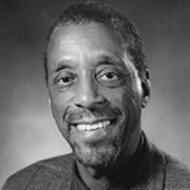Dr. James Turner Discusses Barack Obama, Black Studies & the Absurdity of “Post-Race”

By Donavan L. Ramon, Rutgers University,
Anyone who studies anything remotely related to Africana Studies would know of Professor James Turner, founder of the Africana Studies & Research Center at Cornell University. After establishing the center over four decades ago, Professor Turner is retiring this year. His retirement should initiate celebration—after all, he has trained countless students in Africana Studies over the course of his long and accomplished career. However, the celebratory mood has been overshadowed by the sobering reminder that it is not just his career that is ending; the renowned autonomous center that he established might soon be relegated to a mere subcategory of the College of Arts and Sciences. Coupled with this is Cornell’s recent pledge to drastically increase funding to the center while committing to the development of a new PhD program—moves that are veiled yet belated attempts to assuage critics.
With these contexts in mind, the Council for Black Graduates and the African American Studies Graduate Interest Group co-sponsored a visit by Professor Turner on April 26th at Rutgers University. He conducted a wide-ranging and very informative discussion. Beginning with President Obama’s presidency, he pondered the significance of the 2008 election: “How are African Americans faring under Obama?” The answer to this question became clear after segueing into the current economic crisis, by reading statistics that revealed the ways in which African Americans are disproportionately affected by it. According to Professor Turner, this economic crisis “strangles” the African American community. More troubling though, is the blind faith that African Americans have in him. Even though President Obama has done little to help the black community specifically, Professor Turner noted that we have overwhelmingly supported him. If our support wanes, we run the risk of committing “race treason,” which has prevented blacks from being outwardly critical. Despite this collective black reticence, Obama has not hesitated to posit his critiques of blacks. Professor Turner observed that the president frequents black churches to argue that we must take it upon ourselves to make progress—not unlike the Booker T. Washington-esque rhetoric from a century ago.
Equally important as Obama’s rhetoric, is the contemporary state of Africana Studies, which Professor Turner devoted the second half of his talk to. He succinctly summarized the crisis described above, before asserting that Cornell symbolizes what is occurring throughout the country and is a harbinger for the future of this field. It is only a matter of time, he argued, before other schools follow in Cornell’s footsteps by diminishing the status of Africana Studies. He cautioned us against being fooled by the coded diction of the “economic crisis” lest it provides a reason for administrations to continue assaulting Africana Studies. He concluded by suggesting that the attack on Africana Studies is also an attack on black people more broadly.
Professor Turner’s astute commentary further underscored something that is explicitly clear: the post-race era is completely fiction. Gone are the days of Jim Crow, yet race is still a very pertinent issue—from the elites of the Ivy League to the racial solidarity that Obama enjoys. He reminded us that as scholars working within the African Diaspora, our status within the ivory tower is a precarious one at best, and that the attack on us mirrors the issues we face in larger society. Moreover, he recalled the long history of scholar-activism that we have lost touch with, but could use now to protest the end of the autonomous Africana Studies Center. We were thrilled and privileged to listen to Professor Turner share his insight as he concludes his four-decade career, and we wish him well as he enters his retirement.


COMMENTS